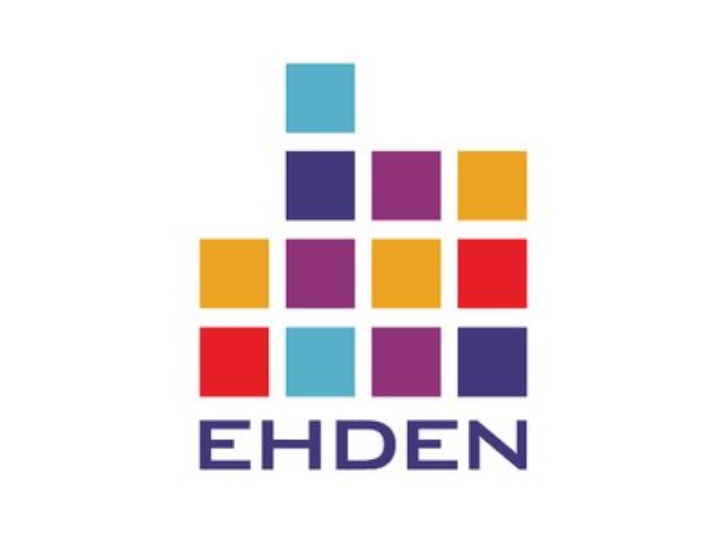Search results (592)
Skip results of view News and highlights

On 1 March 2024 , from 10:00 to 11:00 CET , our webinar on "New b usiness m odels for d ata- d riven s ervices" is set to provide fresh insights into the utilisation of open data. Th e event, building on the data.europa.eu discussion paper , aims to explore how public sector information, when made available as open data, can be purposefully re-used to creat e value for both public and private sectors . In recent years, the focus on open data has shifted towards understanding and meeting end-user needs. Th e webinar will examine the potential of open data in Europe, exploring how it can drive

This year marks the fifth anniversary of RescEU, an initiative by the European Commission that has strengthened disaster response mechanisms across Europe. Established to extend the EU Civil Protection Mechanism, RescEU embodies a deep commitment to protecting citizens from diverse disasters and managing emerging risks effectively. Since its launch in 2019, RescEU has served as a robust reserve of European capacities, fully funded by the EU. This includes a fleet of firefighting aircraft, medical evacuation planes, and critical medical supplies and field hospitals, ready to tackle health

The International Day of Women and Girls in Science, celebrated on 11 February, highlights the critical role women and girls play in science and technology. This year, the focus is on "Women in Science Leadership: A New Era for Sustainability," recognising their contribution to tackling global challenges such as health and climate change. The diversity in research, brought by women, brings fresh perspectives, talent, and creativity, essential for sustainable development. Despite progress in higher education, women continue to be underrepresented in Science, Technology, Engineering, and

Our recent series of panel discussions on AI and open data ecosystems has generated an exceptional level of engagement, with a record number of over 2000 registrations in total for the three sessions. These discussions brought together experts to educate stakeholders in the open data environment about the transformative impact of AI. The panels aimed to shed light on how AI intersects with open data, such as using open data to train AI systems or employing AI to generate new data, while also delving into how EU regulatory proposals could shape this dynamic field. In first panel discussion

The European Health Data & Evidence Network (EHDEN) is changing the way health data is used across Europe. Since its launch in November 2018, EHDEN has been pioneering efforts to generate large scale insights and evidence from real-world clinical data. Their goal is to support patients, governments, and the industry in understanding wellbeing, disease, treatments, outcomes and new therapeutics and devices. As we approach the end of EHDEN's five-year IMI 2 phase in 2024, it's time to reflect on its achievements and look ahead to its sustainable future. EHDEN has surpassed its original

We are excited to invite you to the upcoming ‘ Open data maturity 2023: best practices across Europe ’ webinar on 16 February 2024, from 10:00 to11:30 CET. This event, scheduled following the release of the ninth Open Data Maturity (ODM) report at the end of 2023, is an opportunity to delve into the advancements and strategies of open data initiatives across Europe. The ODM report is an assessment tool that measures the maturity of open data practices in 35 European countries, highlighting the progress in promoting open data publication and reuse. This webinar aims to provide a clear

Open data is transforming the way we see and interact with the world, especially when it comes to making important decisions. The OECD's 2023 Open Useful and Re-usable data (OURdata) Index offers a comprehensive analysis of open data policies across 40 countries. With an emphasis on three pillars—data availability, data accessibility, and government support for data re-use—the report underscores the increasing significance of open data in driving innovation, democratic engagement, and policymaking. The Index, rooted in extensive data collection throughout 2022, underscores the vital role open

We are excited to introduce the DCAT Application Profile for High-Value Datasets (DCAT-AP HVD), a new tool that makes it easier to find and use important public data across Europe. This user-friendly annex enhances the existing DCAT-AP framework, making public sector data more accessible and searchable across borders and sectors. The DCAT-AP is a specification based on the Data Catalogue vocabulary (DCAT) and is crucial for describing public sector datasets in Europe. Its primary goal is to enable people to find data from different government portals easily, helping in better understanding and

We are delighted to share with you the BDTI Essentials Course. It is designed for individuals aiming to strengthen the development of a data-informed public sector. Whether you are a public servant, a professional in the field, a student, or simply keen on public sector innovation, this course is your gateway to becoming skilled at data analysis. This e-learning series comprises five sessions, scheduled for the following dates from 11:00 – 12:15 am CEST. Session 1: Data Access and Exploration (02 February 2024) Session 2: Data Cleaning and Transformation (16 February 2024) Session 3: Data

Register now for the final session of our AI webinar series: A comprehensive look at the EU's AI Act
As our insightful 2024 webinar series on artificial intelligence (AI) draws to a close, we invite you to join the final session, titled "Deep dive into artificial intelligence and data ecosystems: the regulatory approach of the European Union," which is set to unfold the European Union's regulatory stance on artificial intelligence (AI). It will be held on the 2 February from 10:00 – 11:30 CET and follow a similar structure to our first two AI panel discussions. This last session will navigate the current complex landscape where the rapid development of AI technologies is overtaking
